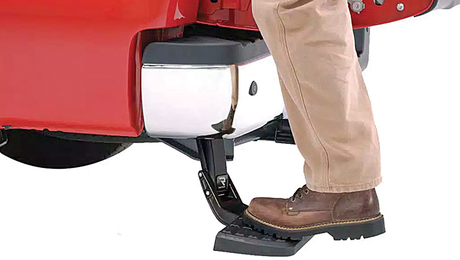I built a lead pan shower base and coated the pan with an asphaltic liquid. The tile contractor installed two layers of thiry pound felt on top of the pan prior to installing a wire reinforced mud base. The base was covered with ceramic tile. The pan has failed five years after it was installed. The homeower insists that the cause of the failure was an electrolytic action between the wire and the lead that caused the lead to corrode. Is the homeowner correct?
Discussion Forum
Discussion Forum
Up Next
Video Shorts
Featured Story

The RealTruck AMP Research Bedsteps give you easy access to your truck-bed storage.
Featured Video
Builder’s Advocate: An Interview With ViewrailHighlights
"I have learned so much thanks to the searchable articles on the FHB website. I can confidently say that I expect to be a life-long subscriber." - M.K.














Replies
Probably not. Lead and steel are pretty close in the Galvanic Scale.
http://www.mtec.or.th/th/research/famd/corro%5Chowmetals.htm
Galvanic corrosion potential between common construction metals
Alum.
Brass
Bronze
Copper
Galvan Steel
Iron/ steel
Lead
Stain steel
Zinc
Aluminum
1
1
1
3
2
2
3
3
Copper
1
2
2
2
1
2
1
1
Galvanized steel
3
2
2
2
2
3
3
Lead
2
2
2
2
3
3
2
3
Stainless steel*
3
1
1
1
2
2
2
1
Zinc
3
1
1
1
3
1
3
1
Thank you
If the lead was reacting with the (I'm assume Fe in the wire) wouldn't you expect lead to react to cast Iron pipes. Which is doesn't seem too considering all of the cast pipes that have joints packed with lead.
Did one of the reinforcing wires poke through the lead during installation? and it has taken this long to leak?
Also, lead is more noble than steel, so if there was a reaction the steel would corode, not the lead.
I invented nobility.
Thank you King Greencu
Lead is a weird choice for a shower, doesn't take much to tear it or poke a hole. Could be leaking anywhere. First thought is the soldered corners, second thought is anywhere. With a felt paper first and then wire and mud on top the whole floor could flex and work a hole in the lead just about any place.
Beat it to fit / Paint it to match
I had a house once that had the same problem -- it was either around the drain or coming in through the tile above the lead pan. Fortunatley, I took the whole thing out and put in a fiberglass unit -- at the time, the retiling and demo was $1500 -- fiberglass was $300 and it was not too bad getting in -- was a 2 piece. And most importantly it did not leak -- how heavy is the couple -- pan has to have a lot of stress and settling to give way after 5 yrs.
Thanks for the info.
T,
I've seen these pans last 50 yrs. or more if formed and installed correctly. I've also seen them never get off the ground.
While it wouldn't be unheard of, I'm curious why the tile setter put felt down.
Long shot here, actually not THAT long cuase I've seen it happen........any chance the tile setter or "someone" may have NAILED or STAPLED the felt or wire lathe to the pan??
Sounds like you're in the blame game here, you mind letting us in? Might be able to help you better with some more info.
Can you open up a ceiling or see the bottom of the pan, ie; has the source of the leak been indicated??
Eric
I Love A Hand That Meets My Own,
With A Hold That Causes Some Sensation.
The plumber we use puts the lead pan down on packed sand, he says anything hard or sharp (like mud and lathe) will likey leak.
The awful thing is that beauty is mysterious as well as terrible. God and the devil are fighting there, and the battlefield is the heart of man.
- Fyodor Dostoyevski